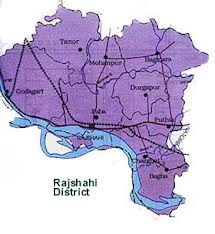Conservation of natural resources has become indispensable for addressing the adverse
impacts of climate change that has been acknowledged as a major threat to the region in
the present context, scientists and researchers say.
They viewed there is no way but to natural resource conservation in the region
particularly the vast Barind tract to face the adverse impact of climate change.
Prof Golam Sabbir Sattar Tapu of Geology and Mining Department of Rajshahi
University says there were many indigenous paddy varieties which required less or no
irrigation. But, the eco-friendly varieties are now on the verge of extinction due to wideranging promotion of hybrid and high yielding varieties.
He, however, said the promoted varieties consume large irrigation and chemical fertilizer
and pesticides which are detrimental to environment.
He added that many other native crop and vegetable varieties are gradually being
replaced with high yielding varieties which are also harmful to our natural ecosystem and
public health.
Apart from this, most of the native fish species particularly the small indigenous ones are
on the margin of extinction due to massive absorption of exotic ones.
Prof Sabbir stated that the rain-fed transplanted Aman paddy has now become totally
depended on irrigation that triggers huge pressure on underground water table which
becomes a common concern.
Time has come to build wider network beyond the partner higher education institutions
and creating platform for open dialogue to initiate regional research programmes on
regional problems and solution.
Importance should be given to capacity building to address climate change in the region
with special reference to conservation of drought tolerant species.
Prof Bidhan Chandra Das of Department of Zoology of Rajshahi University referred to
evidence- based method to support natural resource conservation in the dried area and its
prospects and challenges.
Besides, Das viewed that Bangladesh as well as other developing countries needs more
academics and experts to have better training and clear understanding on conserving
natural resources.
Obviously, we have to devise ways and means on how to cope with the adverse impact of
climate change. Integrated approach has become an urgent need to mitigate the adverse
impact.
“More field level research on global warming and integrated crop management and
problems and mitigation should be promoted in the region,” he opined. -BSS, Rajshahi




